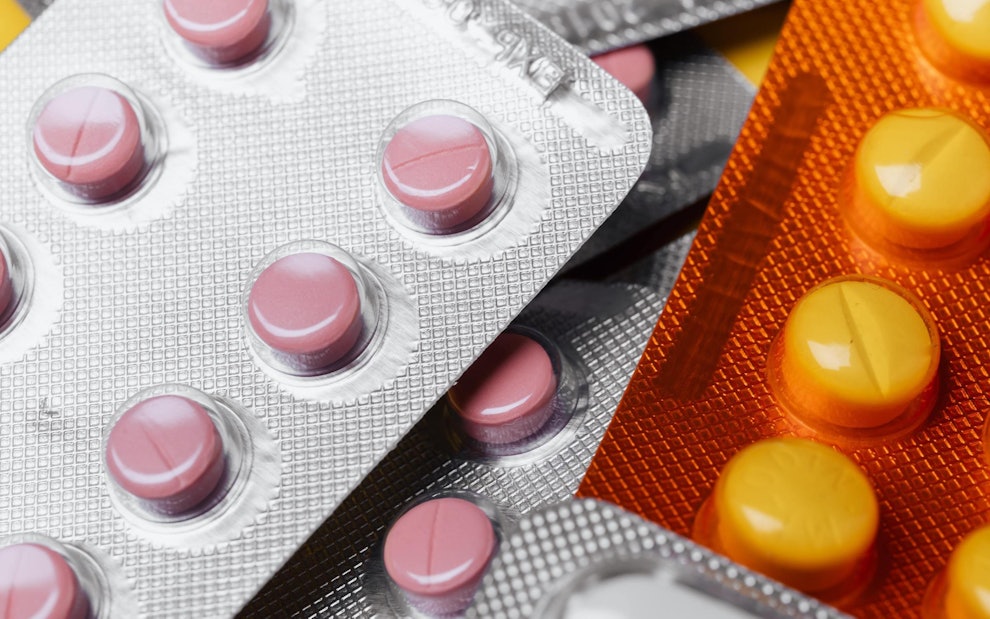Article at a glance
High blood pressure, also known as hypertension, puts half of US adults at risk for serious health issues such as heart attacks and stroke.
The foods you eat play a significant role in your heart health.
There are certain foods to avoid if you want to manage your hypertension including salt, sugars, and saturated fats.
There are foods that help address your hypertension, such as those high in calcium, potassium, magnesium, fiber, and protein.
To help yourself make positive changes, consider starting with small changes to your diet as you improve your overall health.
Make smart choices with every meal to help lower your blood pressure.

Nearly half of adults in the US live with hypertension. This means that there are millions of people who are experiencing related issues such as obesity, smoking, and an inactive lifestyle. While high blood pressure is a major health concern, the good news is that there are changes you can make to your diet that will help you address your hypertension and related health concerns.
Below you’ll find details about what hypertension is, the foods that cause high blood pressure, and how you can change your diet for high blood pressure improvement.
What is hypertension?
High blood pressure, also known as hypertension, is what happens when your blood pressure is higher than normal. Your heart pumps blood to the rest of your body so it can get the oxygen it needs to function. Blood pressure is the way you measure how hard your heart pumps blood. If it’s too high, that shows that there is a problem.
Common causes of hypertension include unhealthy lifestyle choices like smoking or not getting enough exercise. Some health conditions, such as diabetes and obesity, can also increase blood pressure.
Hypertension is not something you can diagnose on your own, as it has very few warning signs. You’ll need a doctor or a blood pressure monitor to evaluate your levels.
Why Blood Pressure Matters

The problem with high blood pressure is that it increases your risk of heart attack, heart disease, stroke, and other disorders.
When you have high blood pressure, the arteries in your heart stiffen and become less elastic. They don’t flex as well, which can decrease the blood flow into and out of your heart. This leads to problems such as:
Arrhythmia
Chest pain or angina
Stroke
Heart disease
Heart attack
Heart failure
Kidney disease
High blood pressure is a serious condition. But with treatment and regular blood pressure testing, it’s possible to improve your symptoms significantly.
Changing Your Diet

A crucial part of managing high blood pressure is changing your diet. Rather than eating foods that contain unhealthy fats, sugars, and salts that can make hypertension worse, consider a diet for high blood pressure. Many doctors recommend the Dietary Approaches to Stop Hypertension (DASH) diet for hypertension.
DASH focuses on eating more fruits, veggies, whole grains, and low-fat dairy as well as foods rich in calcium, magnesium, and potassium. It’s easy to include bananas, avocados, beets, leafy greens, legumes, tomatoes, and yogurt in your everyday meals. The DASH diet also focuses on adding foods that are high in fiber and protein, like chicken breasts, fish, eggs, beans, and lean meat, and cutting out processed foods that are high in added sugars, saturated fats, and sodium.
Keep an open mind — changing your diet often means making changes to your lifestyle. Start off with minor changes and slowly increase your intake of healthier foods that lower blood pressure.
Do it slowly
You don’t need to overhaul your entire diet overnight to eat healthily. This can be overwhelming and make it difficult to sustain in the long term. Instead, take it slowly. Start by adding one serving of vegetables to your dinner or halving your butter consumption or salad dressing serving. Then add another slight challenge the next week. If you can make small changes and sustain them, it’ll quickly add up!
Be consistent
If you’re going to make long-term changes in your diet, it’s important to stay consistent. Add that serving of vegetables to every dinner, not just when you feel like it. That way, you’ll reinforce the habit and increase your chances of successfully improving your diet.
Foods To Avoid

The first step in healthier eating means learning which foods to avoid with high blood pressure. These foods are processed, high in saturated fats and sugars, and often refined or canned.
Salt
Eating too much salt (sodium) can raise your blood pressure. It does so by causing your body to retain excess fluids, which then puts extra pressure on your heart and blood vessels.
Salt comes in many forms and in many foods. The American Heart Association’s “salty six” list shows the six most common salty foods:
Breads and rolls
Burritos and tacos
Cold cuts and cured meats
Pizza
Sandwiches
Canned soup
Try to aim for less than 1,500 milligrams of sodium a day to keep your heart healthy. You can find the amount of sodium in a food by looking at its nutrition label.
Saturated Fat
There are healthy fats and unhealthy fats. Saturated fats are unhealthy in that they can raise your cholesterol and place added strain on your heart. Foods high in saturated fats include:
Red meat
Pork
Processed meat
Cheese
Butter
Cream and other high-fat dairy products
Coconut oil and palm oil
Processed savory snacks
Cookies and cakes
To avoid saturated fats, make small changes where you can in your diet. For example, change your fried chicken leg to a grilled chicken breast or cook with olive oil instead of butter. You can continue to make adjustments when you’re developing a diet for high blood pressure.
Sugar
Sugar can complicate diabetes and increase your weight if not eaten in limited amounts. Studies have shown that consuming sugar can raise your blood pressure just like salt does.
When you’re on a hypertension diet, you’ll want to avoid eating foods high in sugar. This includes obvious foods like:
Table sugar
Candy
Soft drinks
Fruit juice
Cakes and cookies
But you’ll also find sugars in foods such as:
Alcoholic drinks
Ready-made meals
Condiments like ketchup, mayo, and dressings
Processed Meats
Processed meats like deli meat, sausage, and bacon are high in sodium. This is because manufacturers use salt to season, cure, and preserve these meats. Avoid processed meats when possible.
Refined Carbohydrates
Refined carbohydrates are those that have been stripped of their fiber and nutrients during the manufacturing process. This happens with foods such as:
Breakfast cereals
Pasta
Pizza dough
Sweet desserts
White bread
White flour
White rice
Studies show that eating lots of refined carbohydrates can affect your heart health as they lead to an increased risk of heart disease and stroke.
Canned Foods
Canned foods can contain added preservatives, sugars, and salt that are used to improve appearance, texture, and flavor. When shopping, look for lower or low-sodium canned options, which have less salt.
Alcohol
Drinking alcohol can increase your blood pressure. In the short term, three drinks or more in one sitting can temporarily raise your blood pressure. Consistent or repeated binge drinking can have negative long-term effects on hypertension.
Caffeine
For regular caffeine drinkers, caffeine doesn’t affect your blood pressure. But if you don’t consume caffeine often, you might notice a brief spike in your blood pressure.
There are many healthy options you can use to easily replace foods that negatively affect your blood pressure. When following a DASH diet, you can keep an eye out for foods that are full of calcium, magnesium, potassium, protein, and fiber. You’ll also want to make sure that they’re low in sodium and saturated fat. Good foods that lower blood pressure include whole grains, nuts, poultry, and fish. When you avoid certain foods and replace them with healthier choices, you can help reduce your blood pressure and enjoy a healthier lifestyle.
Become a patient
Experience the Oak Street Health difference, and see what it’s like to be treated by a care team who are experts at caring for older adults.



